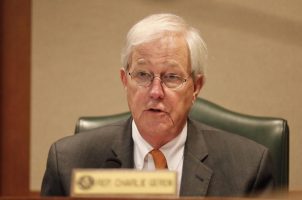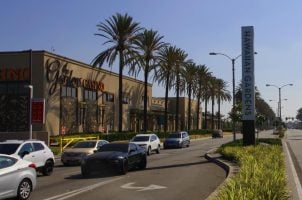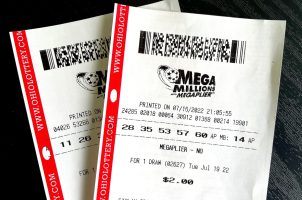Hawaii Casino Resistance Immediately Builds After DHHL Floats Idea
Posted on: December 20, 2020, 06:05h.
Last updated on: December 21, 2020, 10:42h.
Just days after the Department of Hawaiian Homelands (DHHL) floated the idea of a casino in the city of Kapolei, some state politicians are calling the plan a bad idea.

Facing a strained cash situation owing to the coronavirus pandemic, DHHL is scrambling for revenue, and last week said it’s bringing the gaming venue proposal to the Hawaiian Homes Commission this week. There was immediate opposition to that plan among state senators, and that dissent is growing.
While I can appreciate DHHL’s effort to identify revenue generating sources, I’m in strong opposition to their proposal to build a casino in Kapolei. I’d instead encourage DHHL to focus on those kinds of projects to raise revenue which are less controversial and have less of a social impact,” said Sen. Mike Gabbard (D-Kapolei, Makakilo, parts of Ewa, Kalaeloa, and Waipahu), in an interview with Maui Now.
Gabbard is the father of Rep. Tulsi Gabbard (D), one of Hawaii’s two US House Representatives and a 2020 candidate for the Democratic presidential nomination.
Opposition Not Surprising
Gabbard joins colleague Sen. Maile Shimabukuro in openly criticizing the Kapolei casino idea, and their noncompliance isn’t stunning, given Hawaii’s lengthy history of not embracing legalized gambling. The state doesn’t even have a lottery, and joins Utah as one of just two that don’t have any forms of regulated gaming at all.
That anti-gambling track record lengthens the odds of a casino coming to life in Oahu’s second-largest city. So does bipartisan opposition to regulated gaming in the Aloha State. Although the state is heavily Democratic, Gabbard points out both sides of the aisle are against casinos.
“Gambling is a unique issue in our state for bringing together the right and left of the political spectrum in opposition,” he said in the Maui Now interview, adding, “It’s simply not a good fit for the growing city of Kapolei, or, for that matter, anywhere else in Hawai’i nei.”
Assuming DHHL’s proposal makes it past the Hawaiian Home Commission, it would move to Gov. David Ige (D). The plan faces long odds to make it past the governor. But if it does, it would progress to the legislature, where the probabilities of success further dwindle.
Another Hurdle
Gabbard points out that DHHL’s plan could lead to a legal quagmire that may need to be decided by state and federal courts. That’s because Native Hawaiian groups aren’t treated the same by federal agencies as their Native American counterparts.
It’s not immediately clear if the preference is for a commercial or Native Hawaiian casino. But if DHHL’s pitch is to have any success, chances are local indigenous groups must be heavily involved in the project.
The Hawaiian Homes Commission will hear the DHHL proposal at a Dec. 22 meeting. The latter wants to build an integrated resort on land that’s reserved for commercial use.
Related News Articles
California Legislature to Become a Battleground for Tribes and Cardrooms
Most Popular
Las Vegas Overstated F1 Race’s Vegas Impact — Report
Vegas Strip Clubs Wrestle in Court Over Animal Names
ESSAY: Remembering ‘The Beatles LOVE’ in My Daughter’s Eyes
Most Commented
-
End of the Line for Las Vegas Monorail
— April 5, 2024 — 90 Comments -
Mega Millions Reportedly Mulling Substantial Ticket Price Increase
— April 16, 2024 — 6 Comments -
Long Island Casino Opponents Love New York Licensing Delays
— March 27, 2024 — 5 Comments -
Nearly Abandoned Mall Outside Vegas Soon to Have Only One Tenant
— March 12, 2024 — 5 Comments
















Last Comment ( 1 )
With jobs being lost and tourism at a halt, we need to find new means of revenue for the people of Hawaii. Also new means of funding for Hawaiian home lands since the State is not meeting there end of the deal on payments that is owed to Hawaiian home lands from the state. The number one industry gone 2nd largest industry military and 3rd latest industry agriculture as we all know is having a hard time due to Covid a lot of restaurants are closed so our farmers are not making what they used to make , I think we should explore gambling we already have corruption drug addiction and homelessness which monies from gambling would help out the homeless population and help out people with drug addiction think about it